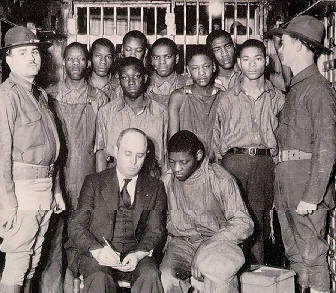I’m reposting what first appeared here July 19, 2022 under the title, “Having become flesh on 25 December, 5 BC, He began tabernacling among us on 29 September, 4 BC” (and republished December 23, 2022). I excavate E. W. Bullinger’s argument, buried in the notes of his Companion Bible, published a century ago. Don’t miss this post’s notes. Merry Christmas! —A.G.F.
 “And the Word became (ἐγένετο, egeneto) flesh (σάρξ, sarx) and dwelt (ἐσκήνωσεν, eskēnōsēn) among us . . . .” John 1:14
“And the Word became (ἐγένετο, egeneto) flesh (σάρξ, sarx) and dwelt (ἐσκήνωσεν, eskēnōsēn) among us . . . .” John 1:14
In “The Divine Purpose,” Otis Q. Sellers wrote:
In all the work that God has done for mankind, is now doing for mankind, and will yet do for mankind, there is a definite goal, a fixed purpose. To state it as simply as possible, His object in all His work is to produce a people who know Him, who understand Him, who love and appreciate Him, a people with whom He can joyfully dwell, and among whom He can center Himself in view of a greater program for the universe.
If the Bible is read carefully from Genesis to Revelation, it will be found that this end is reached and becomes a reality in Revelation 21. There under a new order of things described as “a New Heaven and New Earth,” the tabernacle of God is seen as being with men, He is dwelling (tabernacling) with them, they are His people, and He is their God. This is as far as Revelation takes us, yet we can rightfully go a step beyond this and envision a great divine program in which mankind will be vitally involved as those who are working and not those upon whom God is working. A tabernacle (skenos) in Scripture when used figuratively always denotes a center of activity, and it could not be that God would bring about such a center and then not use it.[1]
To “become flesh” is to be, not born, but rather “begotten,” that is, conceived. The root of ἐγένετο (egeneto) is γίνομαι (ginomai), to come into existence.
The one who is born, who exits the womb, is already flesh, which precedes “dwelling among us.”[2] (She who “can’t bring a baby into this world” and so procures an abortion only achieves the death of an already begotten and in-the-world baby.)
The English “to dwell” doesn’t capture the Greek ἐσκήνωσεν (eskēnōsēn), the form of σκηνόω (skēnoō) in John 1:14. The root is σκηνή (skēne), originally the hut or tent where players changed masks and costumes behind the stage; later, the stage itself. (Our “scene” descends from this.)
When Jerome translated into Latin the Hebrew הַסֻּכּ֛וֹת (hasukkoth) of, say, Deuteronomy 16:16, he used tabernaculum, the diminutive of taberna. (Our “tavern” echoes this.) He rendered that verse’s Hebrew as in solemnitate tabernaculorum, that is, “in the feast of the tabernacles.”
Tabernacles are booths. Annually, Jews today set up booths where they commemorate סֻכּוֹת, Sukkot, one of three Torah-commanded pilgrimages to the Temple which was destroyed in 70 A.D. (The other two are פסח, Pesach, “Passover” and שבועות, Shavous, “Pentecost.”)
In 5 BC, the angel Gabriel announced two conceptions, that of John (the “Forerunner”: Luke 1:13), and then of his cousin, Jesus (Luke 1:31). Gabriel addressed the first to John’s father, Zacharias; the second to Jesus’ mother, Mary. According to E. W. Bullinger: Continue reading “Conceived on December 25th, born on September 29th”

 Hal Lindsey’s The Late, Great Planet Earth, I deem it a blessing that Sellers’s study of γεννηθῇ ἄνωθεν redirected my studies.
Hal Lindsey’s The Late, Great Planet Earth, I deem it a blessing that Sellers’s study of γεννηθῇ ἄνωθεν redirected my studies.

 [Postscript on Creationism added December 18, 2024]
[Postscript on Creationism added December 18, 2024]




 “And the Word became (ἐγένετο, egeneto) flesh (σάρξ, sarx) and dwelt (ἐσκήνωσεν, eskēnōsēn) among us . . . .” John 1:14
“And the Word became (ἐγένετο, egeneto) flesh (σάρξ, sarx) and dwelt (ἐσκήνωσεν, eskēnōsēn) among us . . . .” John 1:14
